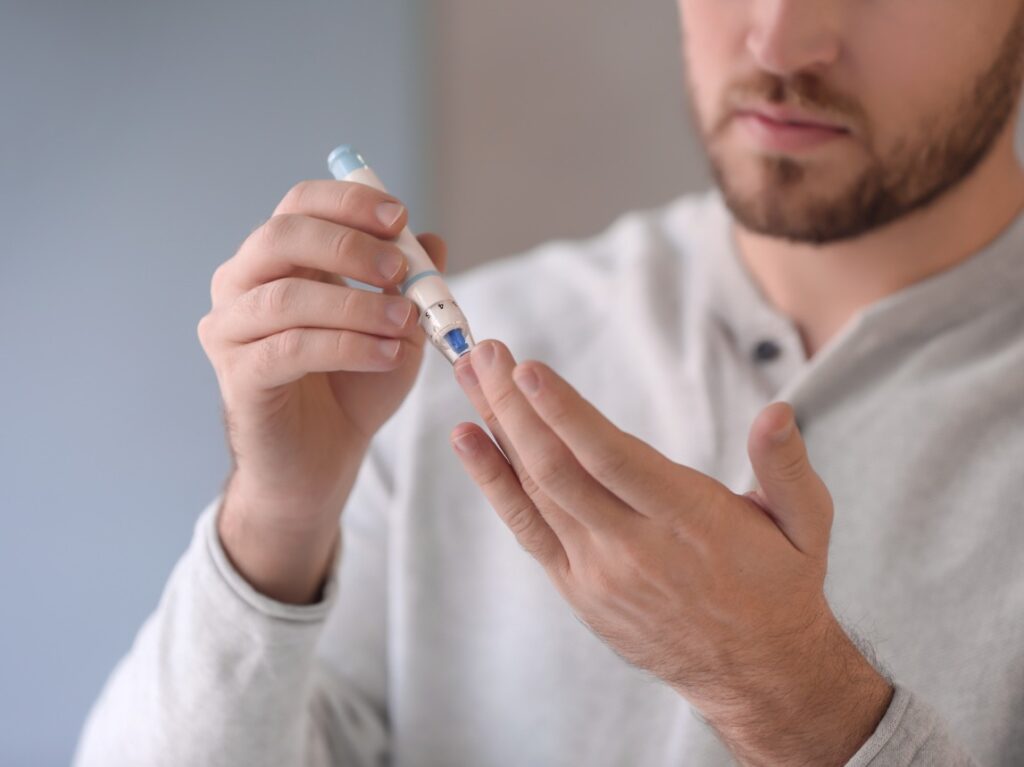Understanding the Impact of Diabetes on Male Fertility: Insights from Dr. Sulabha Pawar
Introduction
Diabetes is a chronic condition that affects millions worldwide, and while much of the focus is often on its impact on general health, it can also significantly influence reproductive health, particularly in men. Men with diabetes may experience various fertility-related issues, often without realizing that their condition could be the cause. As we dive into this subject, Dr. Sulabha Pawar, a well-known gynecologist and fertility specialist, sheds light on how diabetes can affect male fertility, the mechanisms behind it, and what men can do to mitigate its effects.
What is Diabetes?
Before delving into the relationship between diabetes and infertility, it’s essential to understand what diabetes entails. Diabetes occurs when the body is unable to effectively use or produce insulin, a hormone responsible for regulating blood sugar levels. There are two main types:
- Type 1 Diabetes: An autoimmune condition where the body attacks insulin-producing cells, leading to a complete lack of insulin.
- Type 2 Diabetes: A more common condition where the body either doesn’t produce enough insulin or becomes resistant to its effects, often linked to lifestyle factors such as obesity and lack of exercise.
How Diabetes Affects the Male Reproductive System
When blood sugar levels are not controlled, diabetes can lead to damage in various bodily systems, including those involved in reproduction. The relationship between diabetes and male infertility is complex and can involve multiple mechanisms, as highlighted by Dr. Sulabha Pawar:

1. Hormonal Imbalance
Testosterone is the primary hormone responsible for male sexual function and sperm production. Men with diabetes may experience hormonal imbalances that can reduce testosterone levels, leading to lower libido, erectile dysfunction, and poor sperm production. Insulin resistance in type 2 diabetes can also impact the production and regulation of testosterone.
2. Erectile Dysfunction
One of the most well-known effects of diabetes on male fertility is erectile dysfunction (ED). Diabetes, especially when poorly managed, can damage the blood vessels and nerves necessary for achieving and maintaining an erection. This vascular and neurological impairment can make it difficult for a man to engage in sexual activity, thus affecting his chances of conceiving.
3. Retrograde Ejaculation
In some cases, men with diabetes may experience a condition known as retrograde ejaculation, where sperm flows backward into the bladder instead of being expelled during ejaculation. This occurs when diabetes affects the nerves controlling the bladder and sphincter muscles, leading to improper sperm release. Retrograde ejaculation can significantly decrease the chances of successful conception, even though sperm production may remain unaffected.
4. Sperm DNA Damage
Recent studies have shown that men with diabetes may have higher rates of sperm DNA fragmentation, which can impair the sperm’s ability to fertilize an egg. Elevated blood sugar levels can lead to oxidative stress, causing damage to the sperm’s genetic material. This damage can reduce sperm motility, affect its shape (morphology), and lower the chances of fertilization.
5. Oxidative Stress
Diabetes often leads to an increase in oxidative stress, which occurs when there is an imbalance between free radicals (harmful molecules) and antioxidants in the body. Free radicals can cause significant damage to sperm cells, affecting their quality and reducing fertility potential. Oxidative stress is also linked to inflammation, which can further harm reproductive organs and functions.

Diabetes and Sperm Quality: A Closer Look
The quality of sperm plays a crucial role in fertility. In men with diabetes, sperm quality may be compromised in several ways, including:
- Reduced Motility: Sperm motility refers to the sperm’s ability to swim towards an egg. Diabetes can reduce the sperm’s mobility, making it more difficult for fertilization to occur.
- Decreased Sperm Count: Some men with diabetes may have a lower sperm count, which reduces the overall chances of conception.
- Abnormal Morphology: Diabetes may lead to abnormal sperm shape, which can affect the sperm’s ability to penetrate and fertilize the egg.
These sperm abnormalities, coupled with other diabetes-related reproductive issues, can significantly reduce a man’s fertility potential.
Risk Factors and Complications
Certain risk factors and complications may worsen the relationship between diabetes and male infertility. Dr. Sulabha Pawar emphasizes the following:
- Obesity: Obesity is a common complication of type 2 diabetes and is also linked to hormonal imbalances, erectile dysfunction, and lower sperm quality.
- High Blood Pressure: Men with diabetes are at a higher risk of developing hypertension, which can further damage blood vessels and nerves, exacerbating erectile dysfunction and fertility issues.
- Chronic Inflammation: Diabetes often causes chronic low-grade inflammation, which can affect sperm production and reproductive organ function.

Managing Diabetes to Protect Fertility
For men with diabetes who are planning to start a family, the good news is that managing the condition effectively can help protect fertility. Dr. Sulabha Pawar offers the following tips for men looking to optimize their reproductive health while living with diabetes:
1. Control Blood Sugar Levels
The most critical step in protecting fertility is keeping blood sugar levels within a healthy range. Proper blood glucose control can prevent many of the complications associated with diabetes, including nerve damage, blood vessel problems, and hormonal imbalances that can impact fertility.
2. Maintain a Healthy Lifestyle
A balanced diet, regular physical activity, and maintaining a healthy weight are crucial for managing diabetes and improving overall fertility. Weight loss, in particular, can help regulate hormones and improve sperm quality.
3. Monitor Hormonal Health
Regular monitoring of testosterone levels and other hormonal markers can help detect and treat imbalances early. In cases where testosterone is low, hormone replacement therapy may be an option, but this should always be done under medical supervision.
4. Quit Smoking and Limit Alcohol
Smoking and excessive alcohol consumption can worsen diabetes symptoms and further reduce sperm quality. Quitting smoking and reducing alcohol intake can help improve reproductive health.
5. Antioxidant Supplementation
Since oxidative stress plays a role in sperm DNA damage, taking antioxidants such as vitamins C and E, zinc, and selenium may help reduce free radical damage and improve sperm quality.
6. Seek Medical Help for Erectile Dysfunction
For men experiencing erectile dysfunction due to diabetes, there are various treatments available, including medications, vacuum pumps, and even surgical options. Seeking medical help can improve sexual function and increase the chances of conception.
Fertility Treatment Options for Men with Diabetes
In some cases, managing diabetes may not be enough to restore fertility, and couples may need assistance from fertility specialists. Dr. Sulabha Pawar outlines some of the options available:
- Assisted Reproductive Technology (ART): Techniques such as intrauterine insemination (IUI) and in vitro fertilization (IVF) can help men with diabetes achieve pregnancy, especially if sperm motility or count is low.
- Sperm Retrieval Techniques: In cases of retrograde ejaculation or low sperm count, sperm can be retrieved directly from the testes for use in fertility treatments.
- Lifestyle Coaching and Counseling: Comprehensive care, including lifestyle coaching and psychological support, can also be beneficial for managing diabetes-related fertility challenges.
Conclusion
Diabetes can have a profound impact on male fertility, affecting everything from sperm quality to sexual function. However, with proper management, men with diabetes can still achieve successful conception. By maintaining good blood sugar control, adopting a healthy lifestyle, and seeking medical advice when needed, men can protect their fertility and increase their chances of starting a family.
Dr. Sulabha Pawar encourages men with diabetes who are facing fertility challenges to consult a healthcare professional and explore the various treatment options available. Remember, early intervention and proactive management are key to overcoming infertility caused by diabetes.




